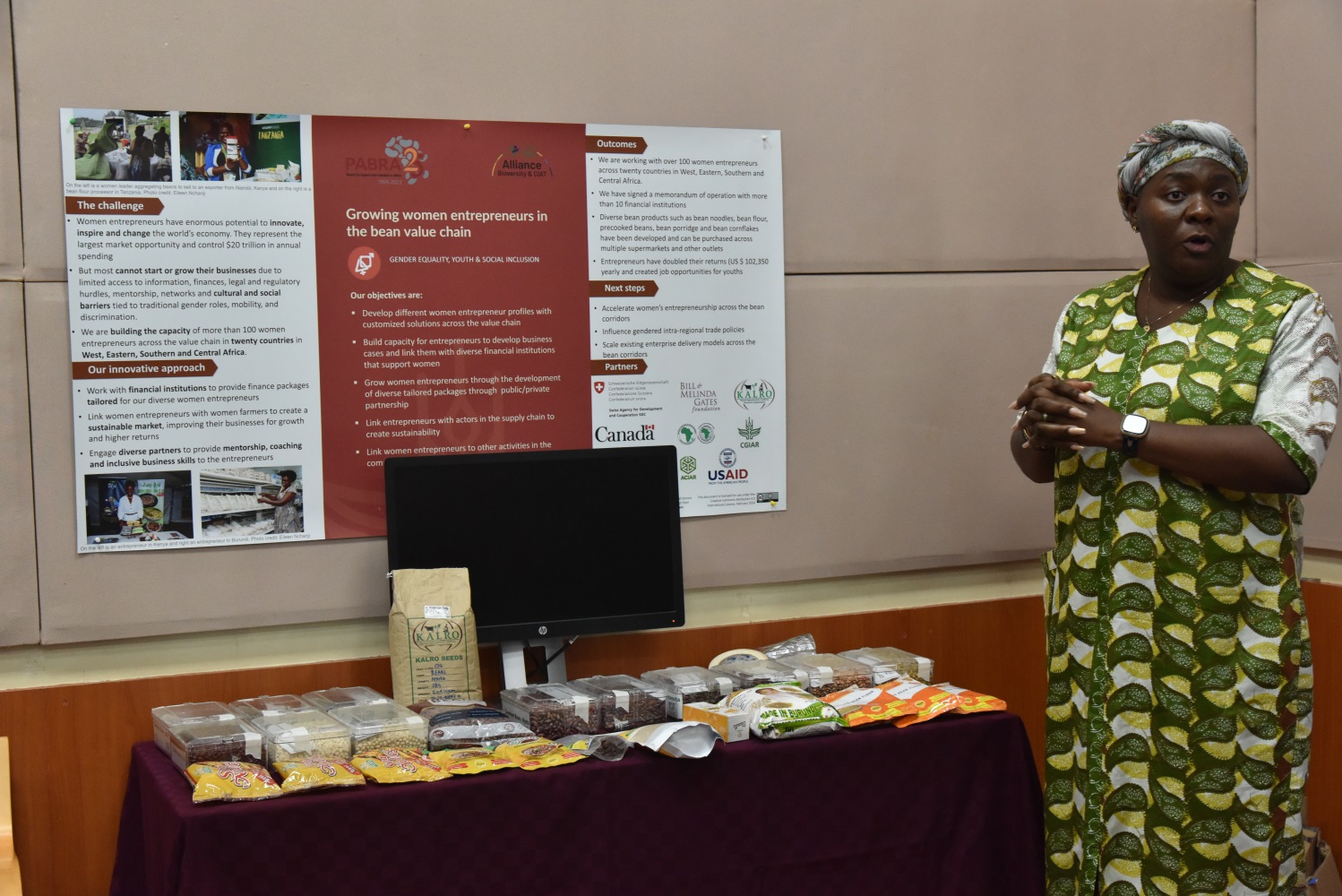CGIAR and partner collaboration: ‘We’re all singing the same song’
-
From
CGIAR Initiative on Gender Equality
-
Published on
15.03.24

On 13 February 2024, over 40 Independent Science for Development Council (ISDC) members and scientists from across the world hailed to the CGIAR research centre, the International Livestock Research Institute (ILRI) in Nairobi, to learn about current research in Kenya. ISDC is an external scientific advisory body that provides rigorous, independent strategic advice on the CGIAR’s long-term research strategies.
This event allowed ISDC members the opportunity to go beyond reading research papers and listening to presentations and interact face-to-face with CGIAR scientists on the ground. It was a big team effort from the CGIAR staff from different centres and partners to collaboratively showcase the impact of CGIAR as a whole and have two-way conversations about their work with ISDC members.
The share fair was organized around the CGIAR impact areas with a total of 18 posters from nine CGIAR centers. Partners from 12 Kenyan organizations also joined.

‘The ISDC challenges our platform strategies for high quality monitoring of impact indicators, specifically for effective risks management. They ask guiding questions to make our work around food, land, and water systems to be impact-oriented with respect to environmental health and biodiversity,’ said Cargele Masso, Director, CGIAR Environmental Health and Biodiversity Impact Area Platform
There are two ways of learning: having conversations and engaging
ISDC and CGIAR staff alike enjoyed speaking with the centre and partners such as Eileen Nchanji from the Alliance of Biodiversity & CIAT, who stood at the Gender equality, youth & social inclusion area.

To improve the CGIAR’s work, she explained, ‘For me the word is action. We have evidence gathered from our partnerships on solutions, but we need to start doing the work and need more investment in gender, especially as gender is one of the CGIAR areas that gets very little money”.
Nchanji’s work is looking at how to make the bean value chain more accessible for women to have their own business as beans are commonly grown by women, but when it turns to the business side of selling the bean, the man of the household takes over. She is striving to increase women’s inclusion in the business side of growing and selling beans. Read More
To learn more about the ISDC Nairobi 2024 meeting, click here.
